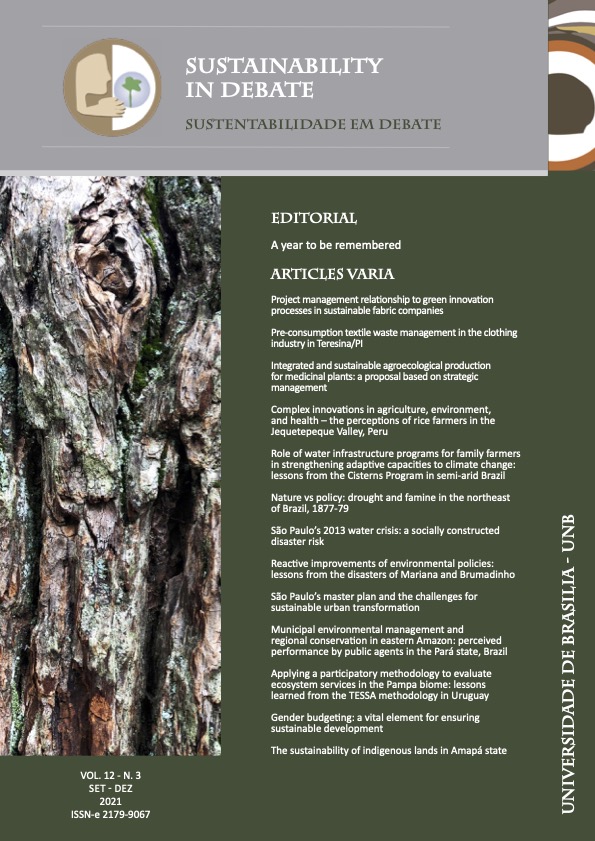Gender budgeting: a vital element for ensuring sustainable development
DOI:
https://doi.org/10.18472/SustDeb.v12n1.2021.38824Palabras clave:
Gender gap index. Gender parity. Gender budgeting. Public policy effectiveness. World countries.Resumen
The article aims to highlight the latest approaches to the introduction of countries gender budgeting. The authors propose the application of the method of ranking countries based on 4 key indicators related to the gender gap (Economic participation and opportunity, Educational attainment, Health and survival, Political empowerment) of the Global gender gap index and then analyse the result considering the level of socio-economic development of each country. Ten sample countries were randomly chosen. The results of the study confirmed the mutual influence between the gender gap and socio-economic development. The proposed method of ranking countries compared to socio-economic, political and environmental development allows countries with a high value of the gender gap index to offer specific tools to reduce it. The research conducted can help improve existing practices, facilitate initiatives to develop gender parity and further work on geographical and sectoral orientation.
Descargas
Descargas
Publicado
Versiones
- 2022-01-11 (2)
- 2021-12-28 (1)
Cómo citar
Número
Sección
Licencia
Derechos de autor 2021 Sustainability in Debate

Esta obra está bajo una licencia internacional Creative Commons Atribución-NoComercial-SinDerivadas 4.0.
La presentación de la(s) obra(s) científica(s) original(es) por parte de los autores, como titulares de los derechos de autor de los textos enviados a la revista, de conformidad con la Ley 9.610/98, implica la cesión de derechos de autor de publicaciones impresas y/o digitales a la Revista de Sustenibilidad en Debate de los artículos aprobados para fines de publicación, en un único número de la Revista, autorizando también que la(s) obra(s) científica(s) aprobada(s) se divulguen de forma gratuita, sin ningún tipo de reembolso de derechos de autor, a través del sitio web de a Revista, para leer, imprimir y/o descargar el archivo de texto, a partir de la fecha de aceptación para publicación. Por lo tanto, los autores, al presentar los artículos a la Revista y, en consecuencia, la libre cesión de derechos de autor relacionados con el trabajo científico presentado, son plenamente conscientes de que no serán remunerados por la publicación de los artículos en la revista.Â
La Revista está licenciada bajo una licencia no comercial y sin derivaciones Creative Commons (No permite la realización de obras derivadas) 3.0 Brasil, con el propósito de difundir conocimientos científicos, como se indica en el sitio web de la publicación, que permite el intercambio del texto y el reconocimiento de su autoría y publicación original en esta revista.
Los autores pueden asumir contratos adicionales por separado, para la distribución no exclusiva de las obras publicadas en la revista Sustenibilidad en Debate (por ejemplo, en un capítulo de libro), siempre que se indique que los textos se publicaron originalmente en esta revista y que se menciona el DOI correspondiente. Se permite y incentiva a los autores a publicar y distribuir su texto online después de su publicación (por ejemplo, en repositorios institucionales o en sus páginas personales).Â
Los autores aceptan expresamente los términos de esta Declaración de Derechos de Autor, que se aplicará a la presentación si es publicada por esta Revista.









